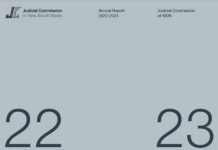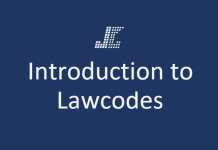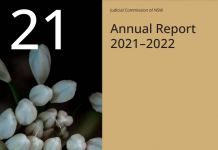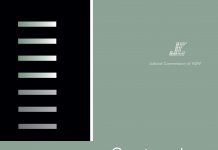The Judicial Commission is committed to building effective relationships with similar organisations around the world. By sharing our expertise and exchanging ideas, we have been able both to learn from the experience of others and assist them to develop the capacity and performance of their judicial officers.
On 2 December 2015, the Judicial Commission signed a Memorandum of Understanding with the Judicial Commission of the Republic of Indonesia to provide a framework for developing judicial education and complaint handling processes aimed at improving and enhancing the capacity of judges. The MoU was signed by Danang Wijayanto, Secretary-General of the Indonesian Judicial Commission, and Ernest Schmatt PSM, the NSW Judicial Commission’s Chief Executive, in the presence of representatives from the Australian Embassy and Department of Foreign Affairs. In his speech at the ceremony, Australian Embassy Minister Counsellor Dr Bradley Armstrong PSM emphasised “the importance of the MoU for building beneficial bilateral relations between Indonesia and Australia”.
The signing of the MoU is the culmination of a longstanding relationship between the two organisations, facilitated under the Indonesia-Australia Legal Development Facility and the Australia Indonesia Partnership for Justice. In 2002, the Commission’s Chief Executive Ernie Schmatt visited Indonesia to address Indonesian judges on the work of the Judicial Commission of NSW and to provide assistance and advice concerning the establishment of a Judicial Commission in Indonesia. The Indonesian Judicial Commission was established in 2005 to provide independent monitoring of judicial conduct. It is responsible for maintaining judicial standards and selecting candidates for the Indonesian Supreme Court. Following its establishment, the Commission continued to provide assistance and advice concerning complaint handling processes, supporting IT infrastructure, judicial education and training, and the provision of information technology to assist judicial decision making.
Given the long history between the two organisations and their similar roles, the Memorandum of Understanding can only strengthen the relationship and lead to increased sharing of information and resources. The two organisations will now develop a program of activities under the MoU. Areas to be covered include staff exchanges and internships, development of joint training programs for judicial officers, and technical assistance relating to the Indonesian Judicial Commission’s database and public complaint system.
The NSW Judicial Commission strongly supports the establishment of this significant partnership and the opportunities it will provide for a two-way exchange of information.










